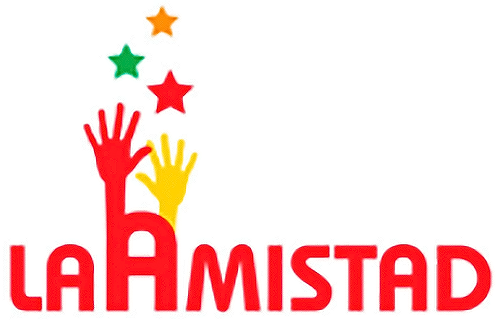When a major part of an organization’s mission is to provide in-person English as a Second Language (ESL) classes to Atlanta’s Latino community and a pandemic strikes, what do they do? How do they continue to offer classes, encourage existing students to return to class, and increase new enrollment?
For LaAmistad, a non-profit organization whose mission is “to prepare Latino students and families for success through academic and life enrichment programs,” their options broadened when a group of four Evening MBA students from the Georgia Tech Scheller College of Business joined the organization this summer to provide pro bono consulting aimed at increasing engagement and enrollment in their ESL classes, or “English for Successful Living” as LaAmistad likes to say.
The non-profit organization primarily serves adults aged 18 years and older with the average age being 30. Many speak little or no English and come to LaAmistad to help them become more productive individuals by learning how to speak English for employment, housing, and other opportunities.
“We recognized that we weren’t reaching the people that we need to help and to have the pro bono consulting MBAs help us to do that is huge for us. It just ties into the bigger picture,” said Briana Reeves, Director of LaAmistad’s ELS program. The MBA students were part of the Pro Bono Consulting Practicum, under the direction of Terry Blum, Tedd Munchak Chair in Entrepreneurship, ADVANCE Professor, and Faculty Director of the Institute for Leadership and Social Impact. They brought knowledge that addressed what LaAmistad needed to reach their goals. For the students, they quickly identified the most feasible way to encourage students to attend classes virtually was to increase LaAmistad’s online presence.
“Since the beginning of Covid-19, LaAmistad was suffering with their enrollment numbers. They were failing to convert their in-person students into virtual students. The project team’s three goals for the semester were to assess LaAmistad’s ESL marketing and communication activities; establish standards, norms, and guidelines for marketing in the post-Covid era; and create a tactical plan to ease implementation and enable success,” said Marilia Brocchetto, MBA ’21.
The team consisted of Brocchetto; Sam Boyd, MBA ’21; Daniel Diaz, MBA ’21; and Kelsi Swenson, MBA ’21. They identified these three initiatives for reaching potential students. “Our client’s goal was to grow their student base by 35% for the summer semester,” said Brocchetto, and according to the statistics, they accomplished that goal abundantly.
“By leveraging the strengths of each team member as well as the buoyant enthusiasm of LaAmistad’s ESL program director, the team was able to propose solutions and instill a willingness to try data-driven, out of the box ideas,” said Diaz.
In assessing LaAmistad’s marketing and communications needs, the team identified their website and social media presence as real opportunities to increase student outreach virtually, since the traditional in-person partnerships that LaAmistad had established with churches and other organizations for in-class teaching facilities were impossible. The team increased SEO on the website as well as Facebook engagement after identifying the platform as the one most used by students.
“The tools they gave us allowed us to keep the students engaged,” said Reeves. In addition to reconfiguring their website, SEO, and social media, the team identified print and email campaigns to grow awareness of the program at a price point LaAmistad could afford. “Things like user experiences on the website and email content can make or break a customer experience and a balance of big picture thinking and attention to detail are key to providing successful solutions,” said Boyd.
Their recommendations paid off. According to Reeves, from April to June, LaAmistad had 33 students. By July, 44 students were enrolled in the program. The team finished their project in August and for their fall enrollment, LaAmistad had increased enrollment to 82 students including two international students from Brazil and Guatemala.
As for the students’ experience, Diaz states, “From a personal perspective, words escape me when trying to verbalize how fulfilling it was serving LaAmistad and using the team’s collective experience and strengths to help them get momentum for their ESL program.”
Swensen agreed. “What’s really rewarding about working for a non-profit is that they are so low on resources because they have small budgets and resources. You can make a difference in a non-profit.”
The team recommended the Pro Bono Consulting Practicum to future MBAs as well. “It was great to see how we could actually help a non-profit in our area do well. It was rewarding to be able to team up with them and help them work through a problem. It also felt good to give back to the community,” summarized Brocchetto.
Learn more about LaAmistad, the premier organization serving Latino students and families in Atlanta.
